Euro 2016: What has gone wrong with Netherlands?
- Published
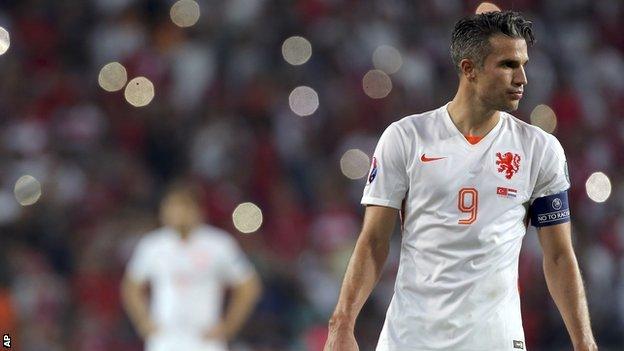
Ex-Manchester United striker Robin van Persie faces missing out of playing at a major tournament
Having secured qualification for Euro 2016, England, Iceland and Czech Republic had reason to celebrate over the weekend. For Netherlands, it was a different story.
After losing 1-0 to Iceland on Thursday, the Dutch were beaten 3-0 by Turkey on Sunday, sliding down to fourth in their group.
With only the first two positions guaranteeing direct qualification for the tournament, Netherlands now seem in deep trouble.
Theoretically they could still end up third and qualify for the play-off stage, but only if Turkey lose one of their next two matches.
With their opponents smelling blood, qualification is no longer in Netherlands' hands. It seems Euro 2016 may have to go ahead without the Dutch.
How has it come to this?
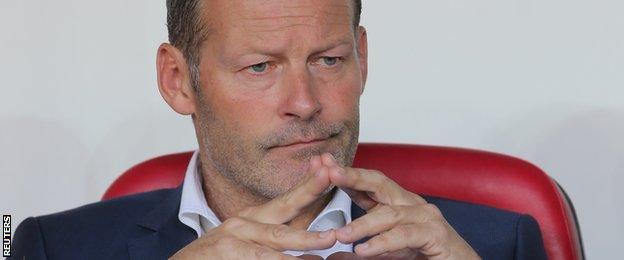
Danny Blind took over as head coach in July after the departure of Guus Hiddink
At the 2014 World Cup in Brazil, Netherlands managed to impress friend and foe alike by finishing third, beating the powerhouses of Spain and Brazil along the way.
Since then, however, one major thing has changed for the Dutch. Louis van Gaal, who was seen by many as the mastermind behind Netherlands' successful campaign, has left to become Manchester United manager, forcing the men in orange to basically start over.
In many ways, Van Gaal's style of management and tactics defined the way the team of 2014 played and behaved.
Take the formation, for example. Normally, the Dutch pride themselves on playing attacking football in a 4-3-3 formation. Van Gaal did away with this. Opting for a 5-3-2 formation, he preferred to shun possession and play on the counter.
Dutch fans and media reluctantly allowed Van Gaal to implement his unusual tactics, but only in return for stone cold results. After the World Cup, the team was expected to return to normality. Guus Hiddink, who succeeded Van Gaal, seemed to realise this, quickly changing the team back to the old ways of attacking 4-3-3 football.
Owing to their 'Total Football' roots, the Dutch say they like to 'control' matches. Playing to their strengths, their aim is to have the most possession and wait for opportunities to overload opponents in their own half with stunning, attacking football.
A good idea in theory, but something that has proved impossible to implement. Hiddink paid the price for a run of bad results when he was sacked and replaced by Danny Blind in July.
What's different in the squad?
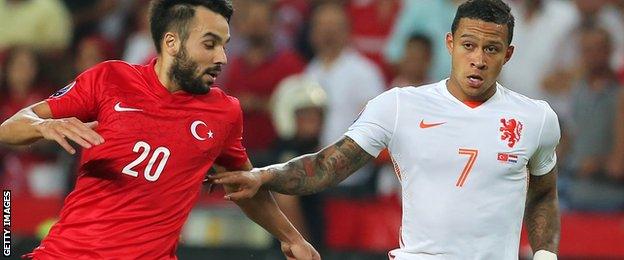
Manchester United winger Memphis Depay had a bright game against Turkey
At first sight, Netherlands' squad seems largely the same. Proven veterans such as Robin van Persie, Wesley Sneijder and Arjen Robben still lead from the front, while younger players such as Daley Blind, Georginio Wijnaldum and Memphis Depay are making up the supporting backbone.
A closer look, however, reveals some cracks in the squad's make-up.
The defence, for example, lacks experience. The prime example is Porto centre-back Bruno Martins Indi, who was sent off in Netherlands' match against Iceland after foolishly fouling Kolbeinn Sigthorsson in a one-on-one duel. The 23-year-old's behaviour, fans and media agreed, was unprofessional, perhaps because of his relatively young age.
Then there is the harsh truth that their veteran frontline might just be past their prime.
Van Persie, the Premier League's top scorer in the 2011-12 and 2012-13 seasons, has left Manchester United to join Fenerbahce in Turkey. Sneijder has never quite matched the heights of the 2010 World Cup, when he inspired the Dutch to the final, while Robben seems plagued by injury problems.
Is it the usual Dutch 'disharmony'?
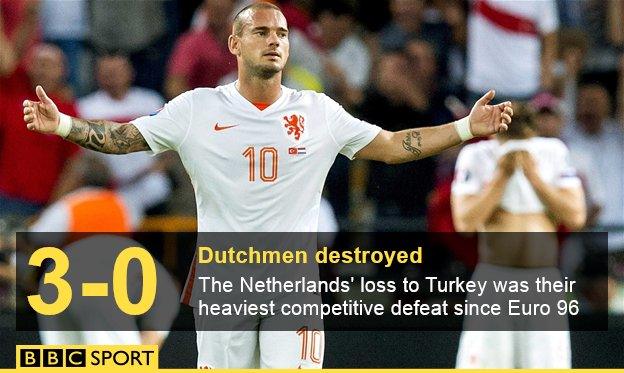
There seems to be little obvious disharmony in the team. Robben, who has taken over the captain's armband, is highly respected by the squad, along with his lieutenants Van Persie and Sneijder.
However team discipline is becoming a problem. After Martins Indi's red card last week, Robben was quick to condemn him, external in the Dutch media.
Then there is the issue of management. Succeeding Van Gaal after the World Cup, Hiddink seemed unable to motivate his men for the Euro 2016 qualifying campaign. Perhaps the transition from one style of management to the next was too big for the players. Where Van Gaal was a marked authoritarian, demanding great discipline and respect from his players, Hiddink was a much more laissez-faire style of boss.
What Blind's management style will look like over the longer term remains to be seen. But the signs are not very good so far. The primary question is: are the players willing to rally behind a young and unproven manager?
What do the Dutch people make of it?
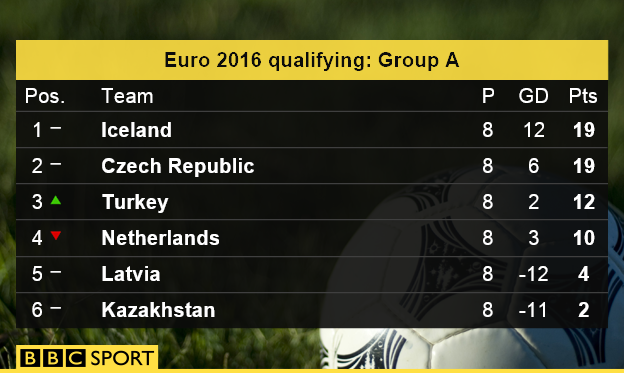
Understandably, Dutch fans are very disappointed. After such a successful World Cup in 2014, many of them had hoped for another great tournament. With host nation France so close geographically, the summer of 2016 was supposed to be one big orange party.
Now, the general consensus is this squad does not really deserve any success. Shocked by the country's bad run, fans feel their pride has been damaged. If we're not playing well, people seem to agree, we might as well give up.
In the Dutch media, this sense of disappointment is mixed with resentment. Headlines are not shunning big words and grand statements. This Dutch team has repeatedly been called the "laughing stock" of Europe by its own press.
Will Netherlands ever be able to return to their former glories? Not for quite a while, if the fans' and media's reactions are to believed.
Can they turn it around?
The Dutch FA has already tried the most obvious trick in the book: sacking the manager. But with the relatively inexperienced Blind now in charge, it is difficult to argue things are getting better.
In all honesty, Netherlands' last chance to turn things around was last Sunday, in their match against Turkey. Had the Dutch won, they would have been in third place, on course to qualify for the play-offs.
Having lost, however, they can only do one thing: win their remaining two matches against Kazakhstan away and at home to Czech Republic, and hope Turkey will lose one of theirs - away to the Czechs and at home to Iceland. In other words: it really isn't up to Netherlands anymore.
Besides, even if they do manage to reach third place, they will still have to beat their opponents in the play-off round. And with the recent disastrous string of results in mind, few people seem to be backing the Dutch to pull this off.
- Published6 September 2015
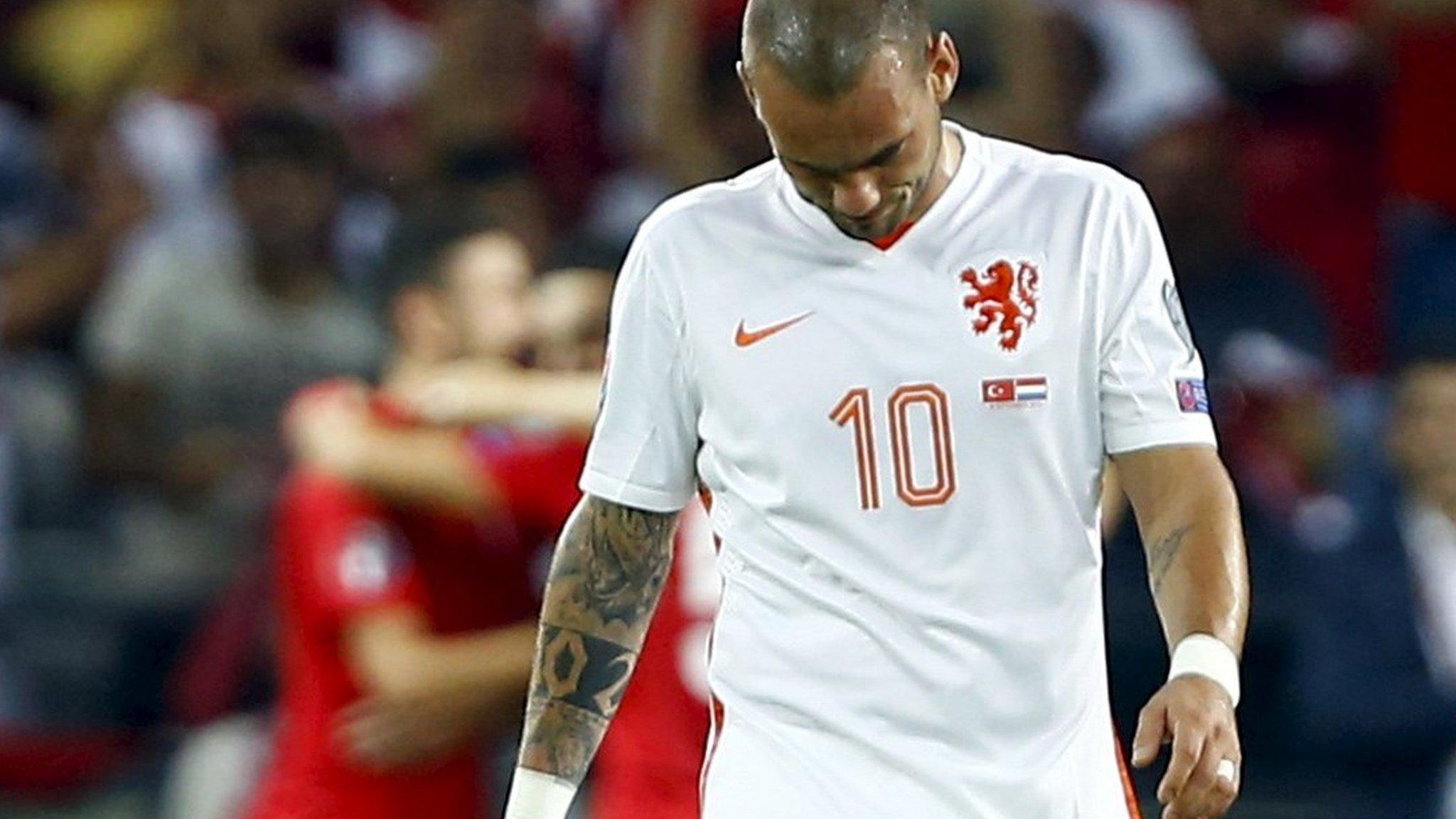
- Published7 September 2015
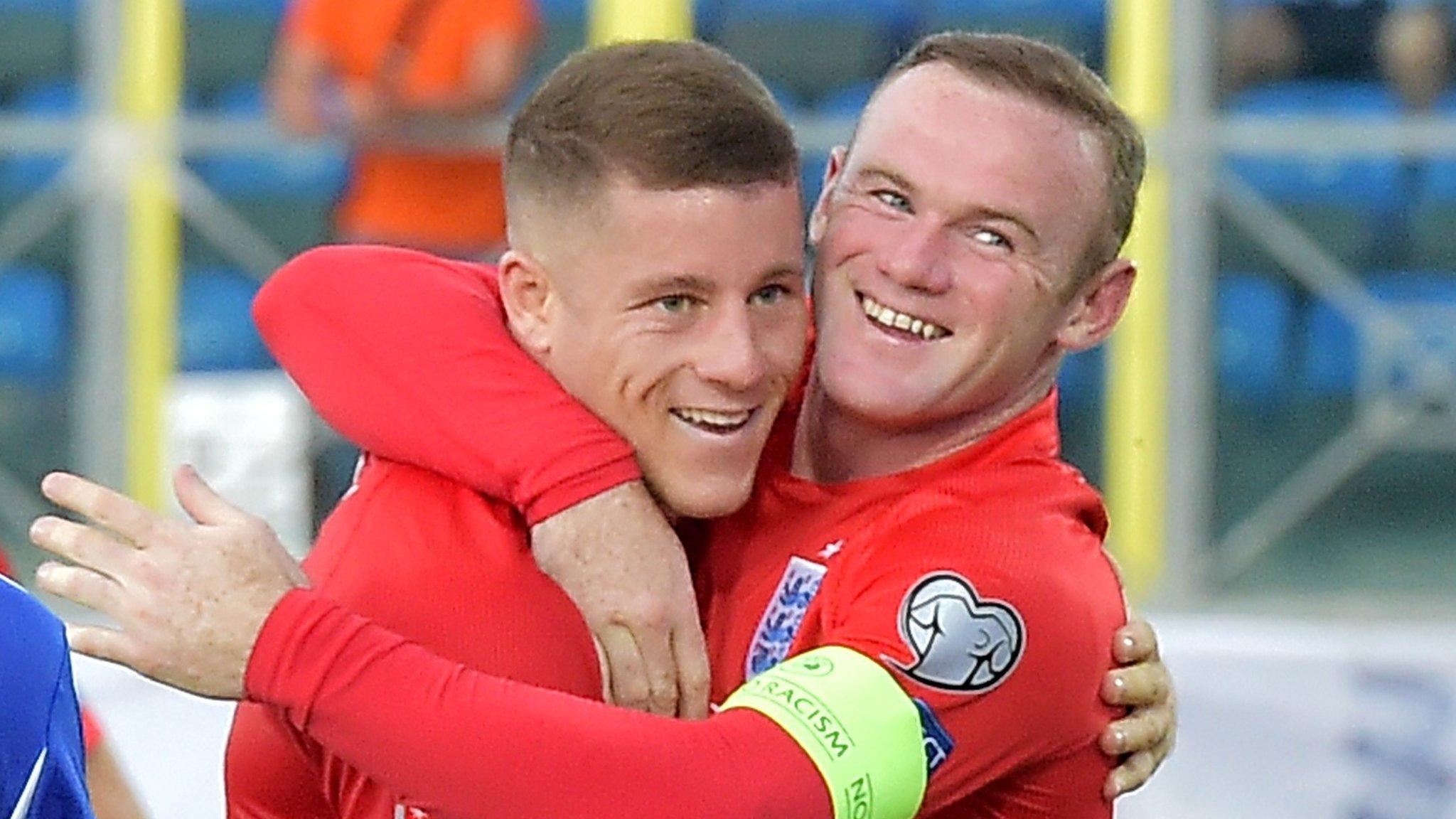
- Published20 June 2016

- Published7 June 2019

- Published2 November 2018
